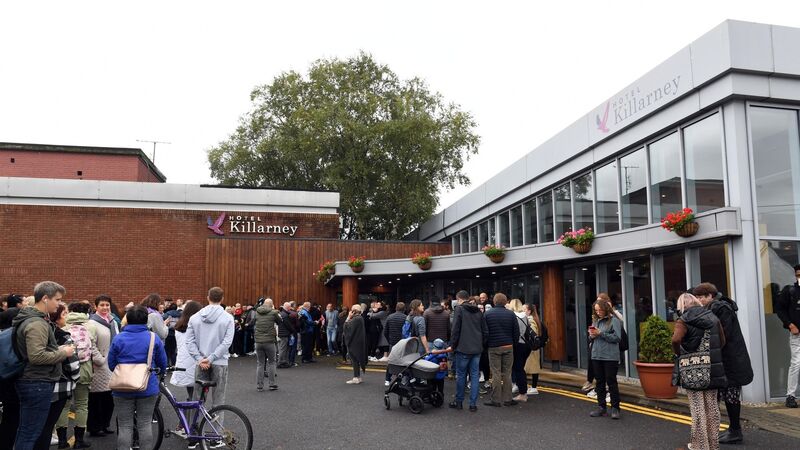It's important we don't buy into the false narrative of the ‘good’ refugee versus the ‘bad’ refugee

Ukrainians gather outside Hotel Killarney in Killarney on Wednesday morning. Picture: Don MacMonagle
Try from €1.50 / week
SUBSCRIBE
Ukrainians gather outside Hotel Killarney in Killarney on Wednesday morning. Picture: Don MacMonagle
The demand for shelter for people fleeing war has never been greater, yet conditions for asylum seekers are the worst they have been in 20 years, according to Nasc, the Migrant and Refugee Rights Centre.
Fiona Hurley, chief executive of Nasc is also worried by the perceived division between refugees, an attitude that pits Ukrainian refugees against those fleeing persecution from other countries.
Already a subscriber? Sign in
You have reached your article limit.
Annual €130 €80
Best value
Monthly €12€6 / month
Introductory offers for new customers. Annual billed once for first year. Renews at €130. Monthly initial discount (first 3 months) billed monthly, then €12 a month. Ts&Cs apply.
CONNECT WITH US TODAY
Be the first to know the latest news and updates
Newsletter
Sign up to the best reads of the week from irishexaminer.com selected just for you.
Newsletter
Keep up with stories of the day with our lunchtime news wrap and important breaking news alerts.
Newsletter
Sign up to the best reads of the week from irishexaminer.com selected just for you.
Saturday, February 7, 2026 - 7:00 AM
Friday, February 6, 2026 - 4:00 PM
Friday, February 6, 2026 - 9:00 PM
© Examiner Echo Group Limited